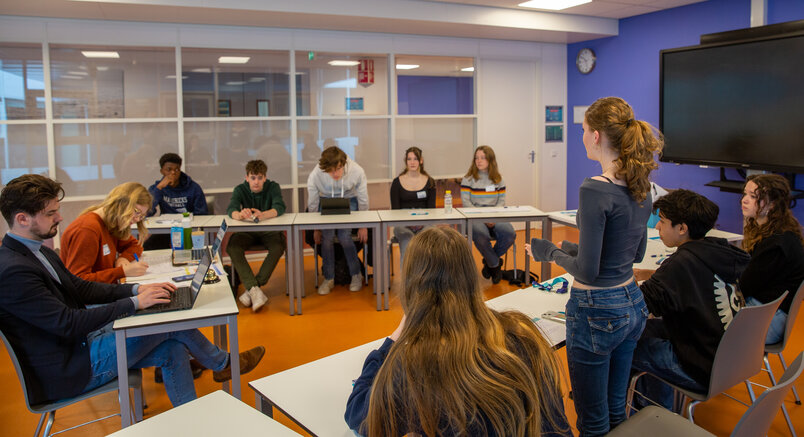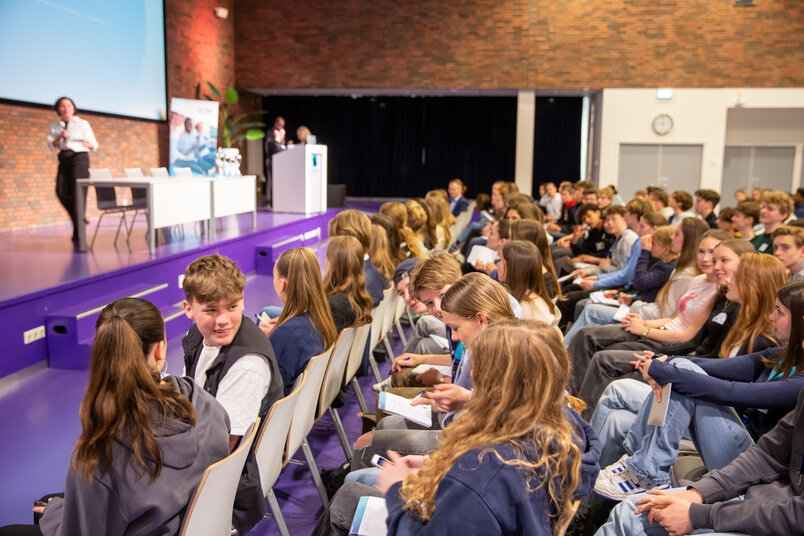
DISCUSS Project: Science & Green Debate Event at Hogeschool Leiden
The DISCUSS project stands as a symbol of empowerment, offering youth the opportunity to engage in meaningful debates. At Hogeschool Leiden, over a hundred students participated in an enormous debate event focused on science and green issues. We also welcomed special guests, as a symbol of this project.
The DISCUSS project empowers young people to engage in meaningful policy discussions. On April 24th, Hogeschool Leiden hosted a science and green policy debate event, bringing together youth participants and four decision-makers. The event aimed to help young people, particularly those from disadvantaged backgrounds, develop debate skills and advocate for inclusive green policies.
Throughout the day, participants explored scientific concepts and engaged in structured debates that challenged them to connect science with policymaking. Unlike a traditional debate competition, the focus was on deliberative discussions, where students analyzed real-world issues, exchanged viewpoints, and refined their arguments in a collaborative environment.
Three scientists—Dr. Peter Taschner, Dr. Richard Karlsson Linnér, and Dr. Ivo van de Peppel—delivered interactive presentations on their areas of expertise. Instead of simply listening, participants were encouraged to question, challenge, and discuss scientific concepts with the experts. These sessions provided a foundation of evidence-based arguments, allowing students to strengthen their debate positions with real data.
Following each presentation, participants engaged in structured debates based on key statements connected to the experts’ topics. These discussions encouraged critical thinking, argument development, and exposure to diverse perspectives. Unlike traditional classroom learning, students were given the freedom to explore different sides of the debate, defend viewpoints they may not have originally agreed with, and experience real policy challenges firsthand.
A highlight of the event was the interactive Q&A session, where participants could ask scientists follow-up questions based on their debates. This allowed them to deepen their understanding of complex topics and focus on the issues that mattered most to them.
The event concluded with an informal networking session, where students had the opportunity to connect with scientists, decision-makers, and fellow participants. Many students expressed that the debates helped them feel more confident in discussing scientific topics and made them more aware of the connections between scientific research and real-world environmental policies.
The Youth Debate Science Day at Hogeschool Leiden was a powerful demonstration of how debate can bridge the gap between science and policy. By interacting with experts and engaging in structured but open-ended discussions, students improved their scientific literacy, critical thinking, and public speaking skills. Many participants left with a stronger understanding of how they can use their voices to advocate for environmental policies and take an active role in shaping a greener future.



One-time donation
IDEA supports young people in becoming critical thinkers and active citizens.
You can help.



